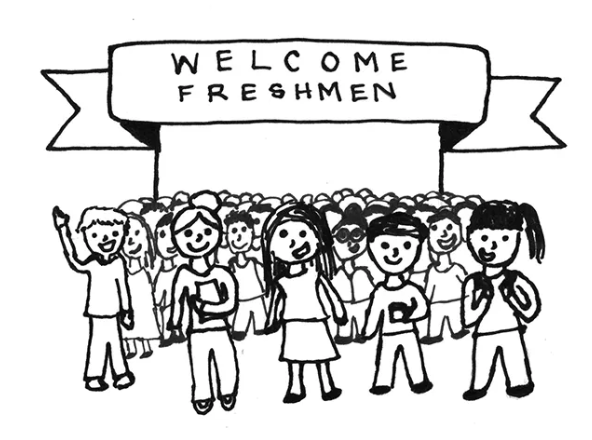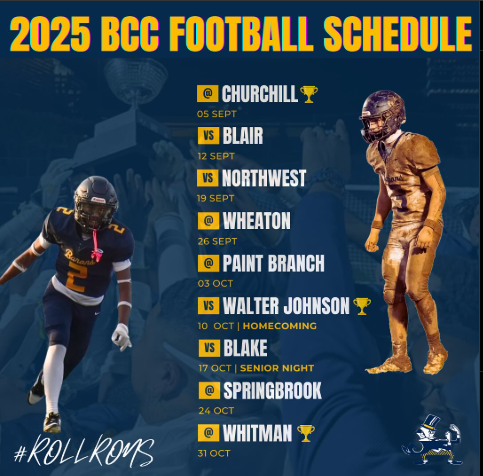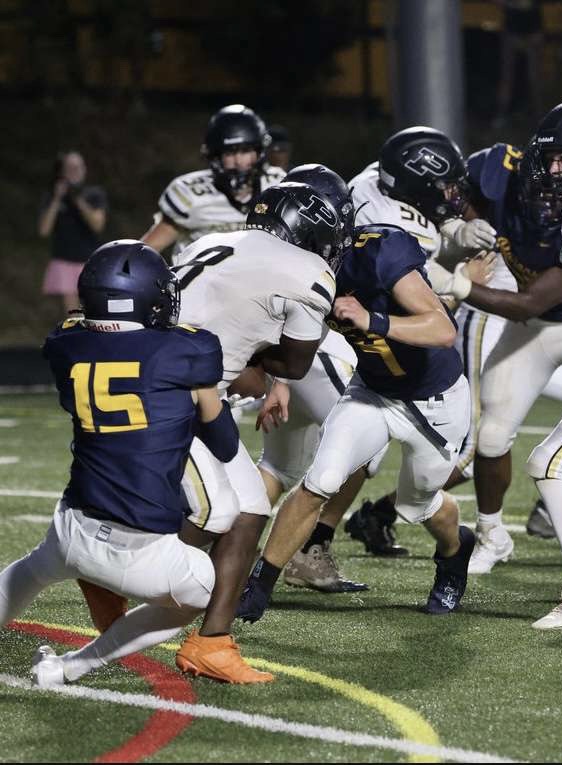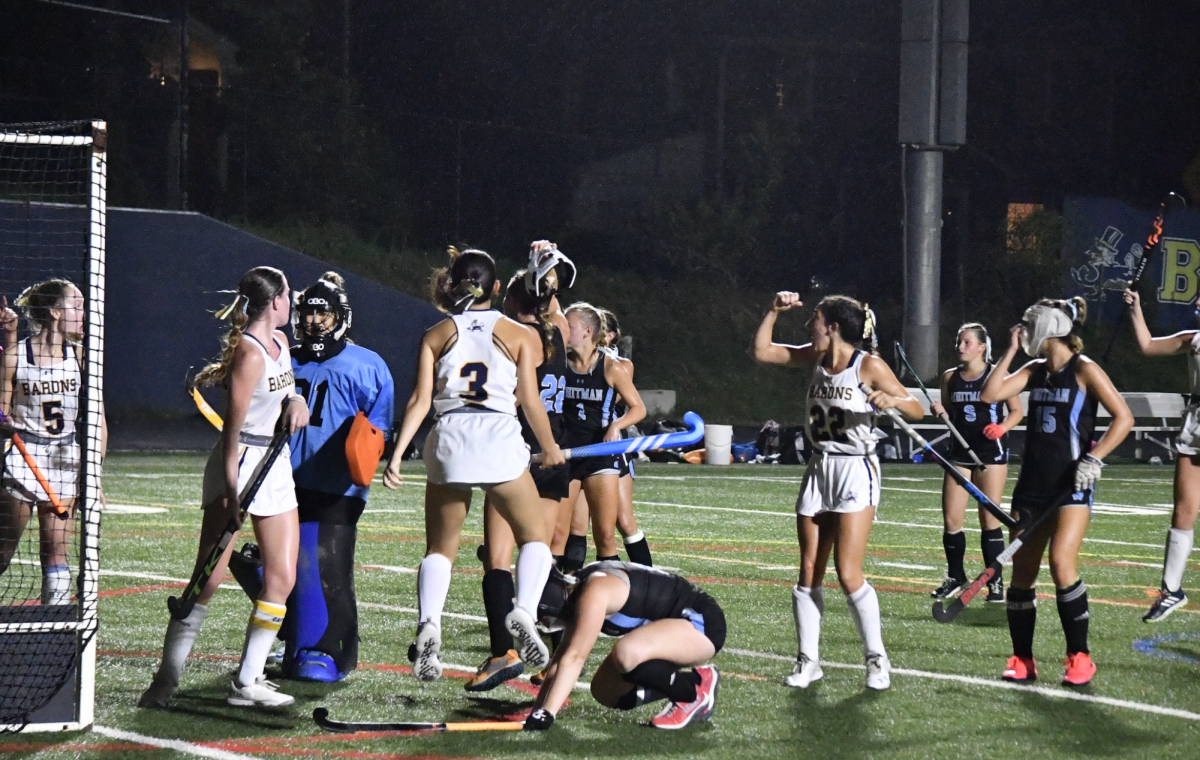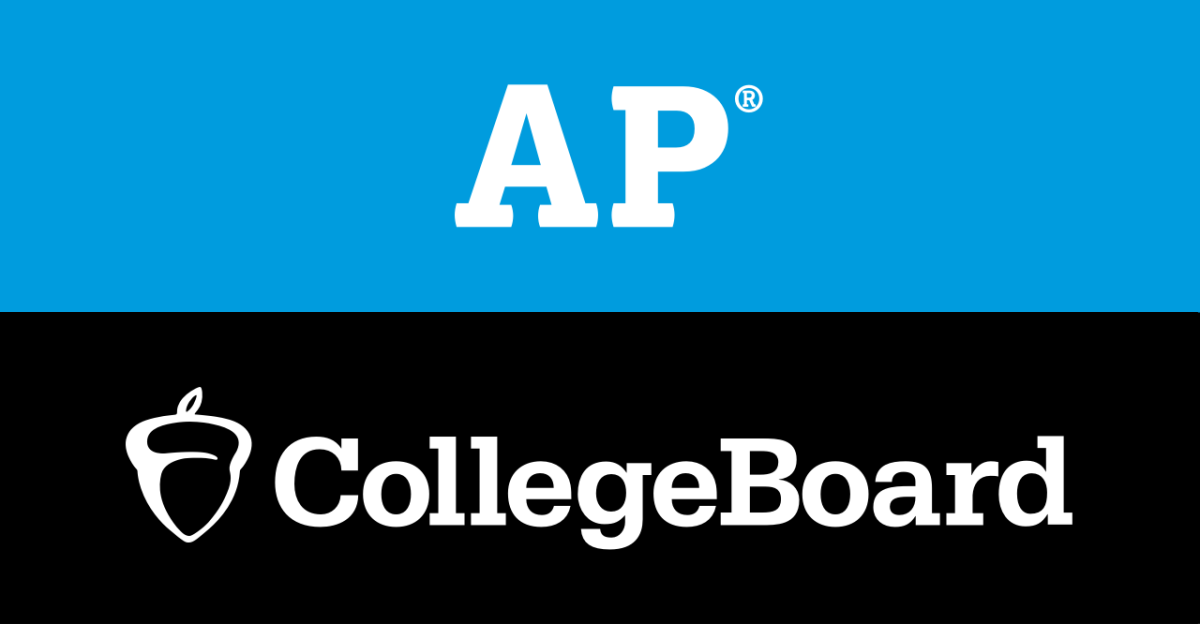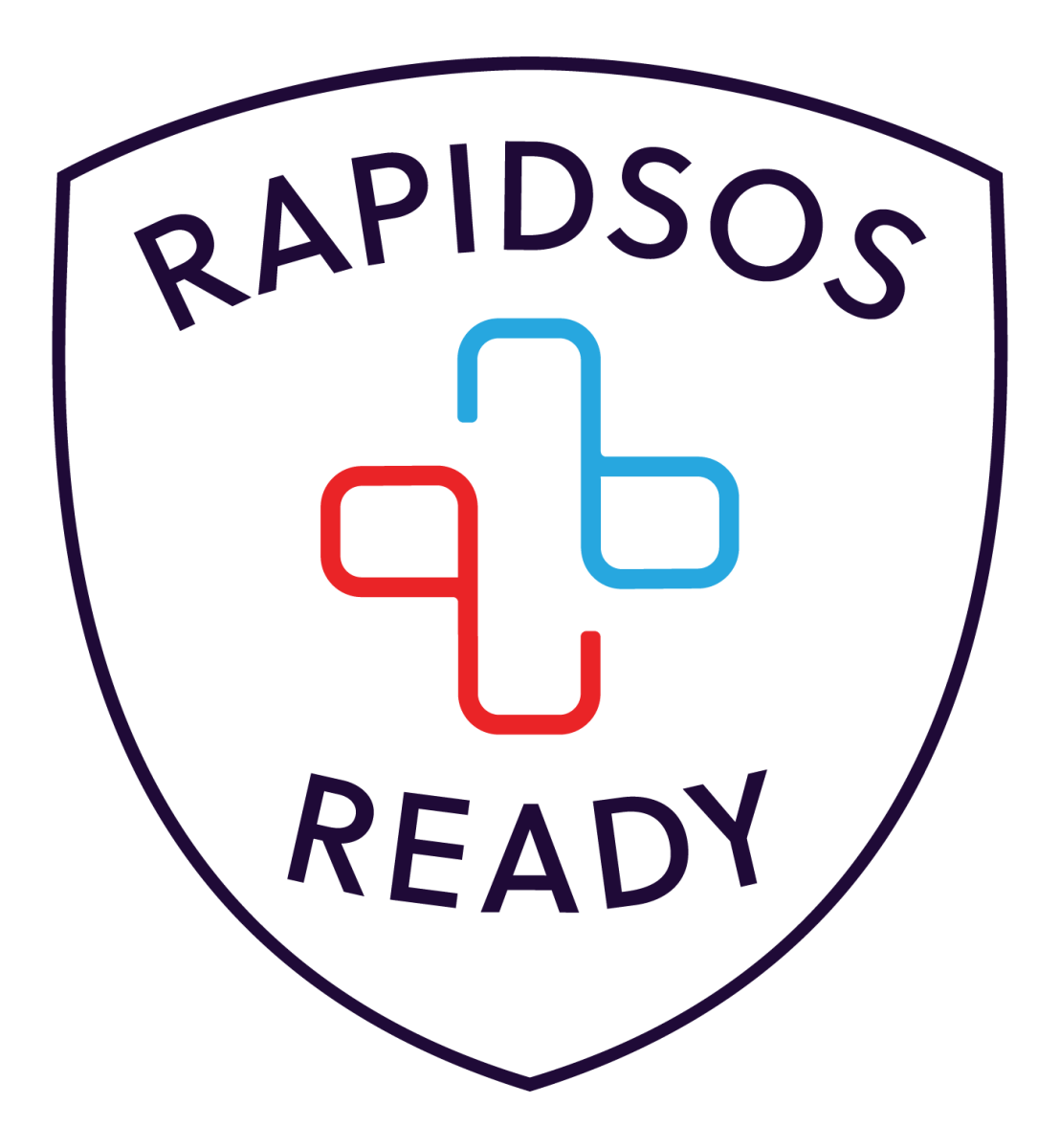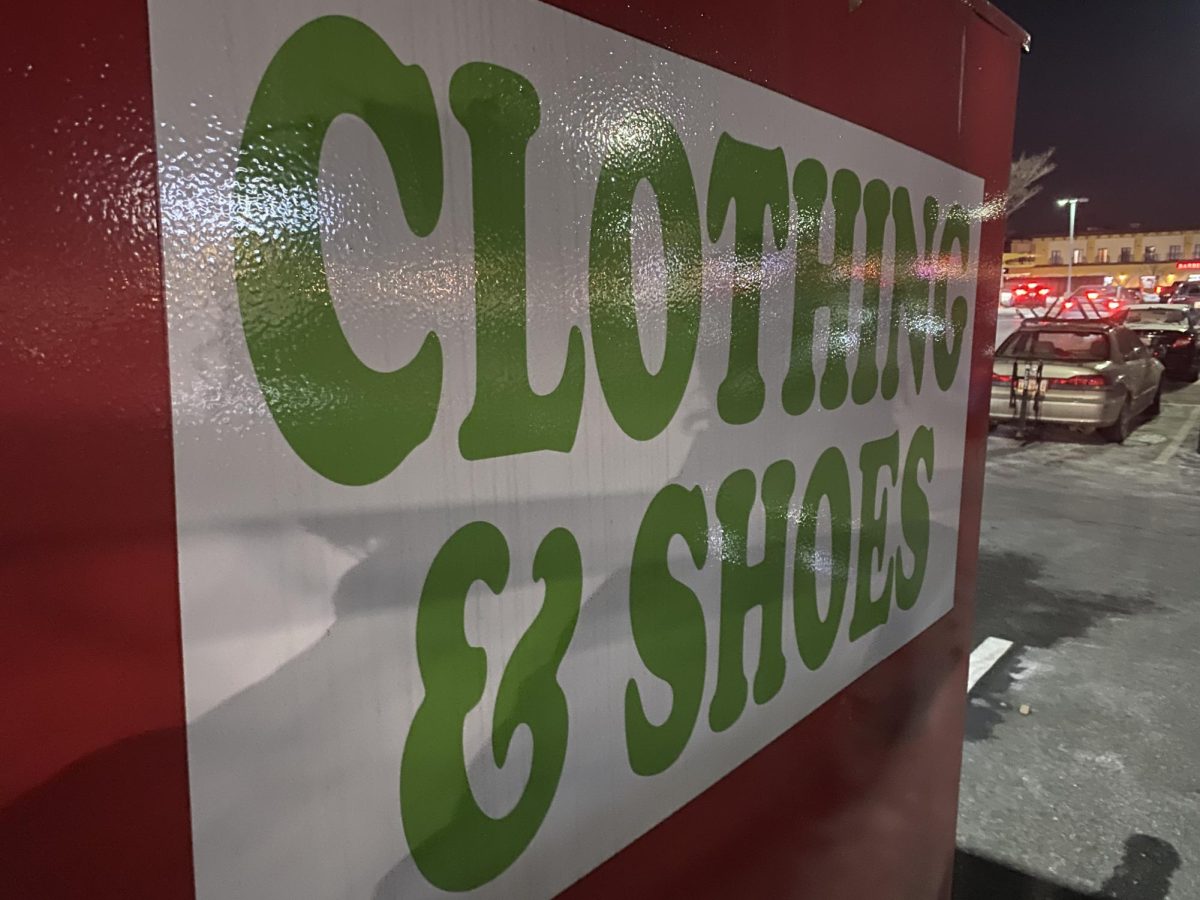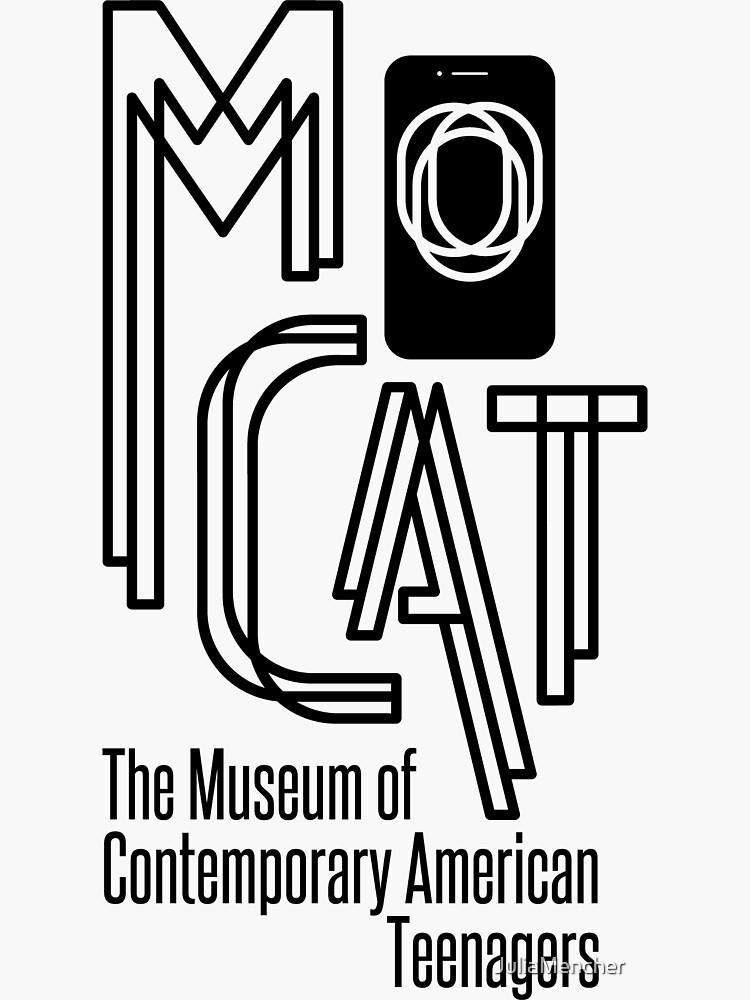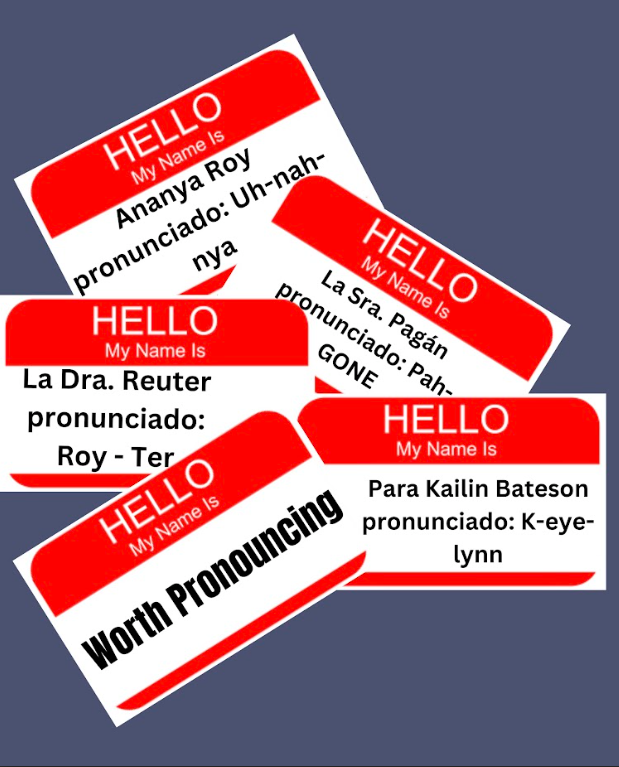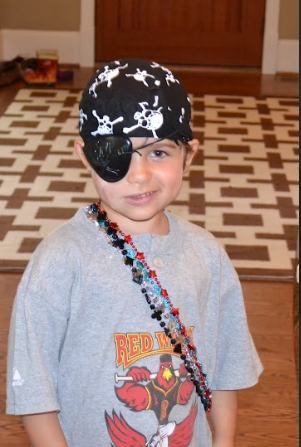“I get annoyed when people say, ‘Oh I am gonna butcher this name,’ or when they repeatedly get my name wrong and choose to assign a nickname instead. It led me to believe I should change my name for the ease of others,” explained Senior Ananya Roy (pronounced Uh-nah-nya).
Many people from various backgrounds have had a similar experience to Roy in regards to their name. B-CC teacher, Ms. Pagán (pronounced Pah-GONE), has dealt with the same thing. “I’ve absolutely had issues with people mispronouncing my name; it happens every year, and I’m not talking about when someone first meets me or first hears my name. I’m talking about people that I have known and worked with for over eight years.”
When people continue to refuse to attempt to pronounce a name correctly, it insinuates that they are choosing their own linguistic comfort over another person’s identity. Also, it implies that the other person’s identity is not worth the energy it would take to pronounce their name correctly.
For Kailin Bateson (pronounced K-eye-lynn), her name has cultural significance. “In Mandarin Chinese, my name is made up of two characters: kai and ling. The ‘kai’ character means ‘happy.’ The ‘ling’ character means the sound of bells tinkling together or the sound of two pieces of stone, like jade, gently hitting each other,” she explained.
Dr. Reuter (pronounced Roy-Ter), another teacher at B-CC, makes an effort to learn how to pronounce each of her students’ names from the first day of class. “Day one in my new classes, I have students fill out index cards that I use as calling cards that have: full name, first and last, preferred name, pronunciation key of preferred name – however best they can make one -, pronouns, a fun fact, and anything else they think I should know, from preferential seating to what kind of dog they have,” said Dr. Reuter.
When you’re not sure how to pronounce someone’s name, it’s best to ask. Bateson shared, “I appreciate when people ask me if they are pronouncing my name correctly. I would rather someone ask than not say it at all, or call me by the mispronounced version.”
Pronouncing names correctly, or even making the effort clearly, is the minimum expression of respect and is the basis for forming a beneficial relationship with someone. It makes people feel seen, and the absence of this effort sends the message that they are not important enough for someone to worry about them and their name. Ms. Pagán explained, “When people don’t pronounce my name correctly, it is insulting. I feel disrespected, and sometimes it feels like a microaggression. That action communicates to me that getting my name right doesn’t matter to you – that I do not matter to you.”
Dr. Reuter explained, “Our names are the emblems of ourselves. Some of us were given names, and some of us chose our names. Either way, every human deserves to be called what they want to be called, which includes correct pronunciation and pronouns.”



